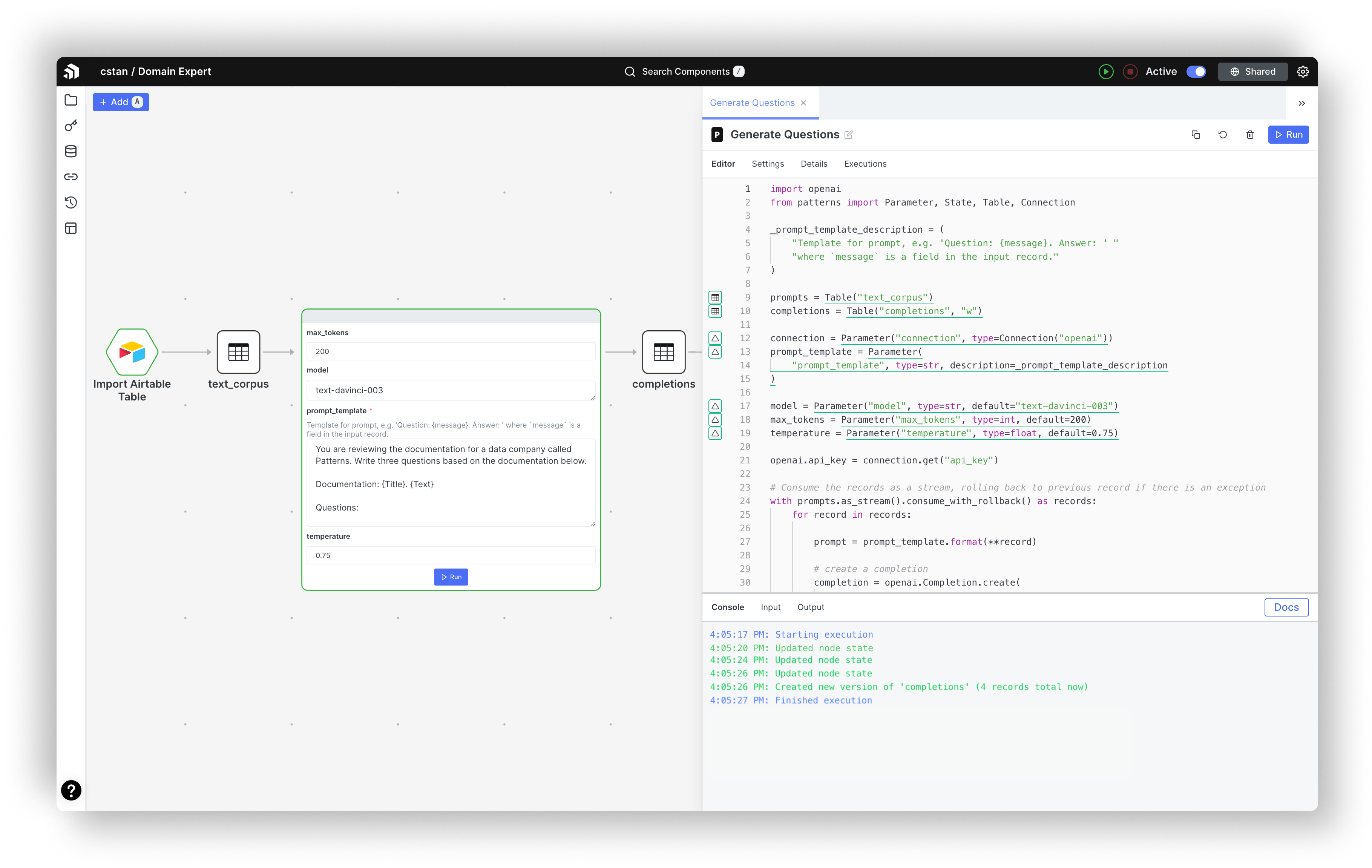Ken Van Haren and Chris Stanley were data scientists at Google and Square, respectively, who found themselves frustrated by how much time they were spending wrangling infrastructure versus doing actual data science. In surveying their colleagues, they found that it was a common problem. According to one poll, data scientists spend over half their time cleaning and organizing data and the majority of the rest collecting datasets.
Aiming to streamline the grunt work, Van Haren and Stanley launched Patterns, a platform that abstracts away AI model engineering. Backed by Y Combinator and angel investor Lenny Rachitsky, Patterns recently closed a $2.5 million pre-seed round.
“Patterns is the platform for any exec looking to prepare for the new world of AI, stay ahead of the transformation it will bring to their business and start building core AI features into their product and operations,” Van Haren told TechCrunch in an email interview. “We help companies to handle the incredible rate of progress of AI, which involves adapting to new models and paradigms quickly.”
Patterns’ platform lets users build integrations, automations and workflows with AI from a set of modular components. According to Van Haren, it essentially wraps workflow logic and infrastructure in a software layer.
First, customers connect an app to Patterns using a library of prebuilt connectors. Then they build out a use case with code in Patterns’ web-based IDE — shipping the final product and optionally monitoring its performance with the platform’s analysis and debugging tools.

The Patterns platform. Image Credits: Patterns
So what can you build with Patterns? Van Haren gave examples from his own experimentation. Using large language models akin to ChatGPT, he built a free-form question-answering bot on top of a CrunchBase database of investors, companies and fundraising rounds. For another demo, Van Haren fine-tuned OpenAI’s GPT-3 language model on a dataset of over 6.5 million Hacker News comments to — in his words — “represent the collective wisdom of the HN community in a single bot.”
“People are excited about AI and are looking to go beyond just toying around in a playground,” Van Haren said. “Patterns gives them a fast and powerful way to develop and deploy AI into real problems.”
Patterns has elements of an MLOps platform — that is, a platform for building, testing and deploying machine learning models into production. MLOps is a burgeoning field, with lots of vendors vying for both market share and VC dollars.
By one estimation, the market for MLOps could reach $4 billion by 2025.
There’s Galileo, which provides a platform for AI model development, and Qwak, whose fully managed platform combines machine learning engineering and data management tools. Other rivals in the space include the enterprise-oriented Diveplane, Tecton, Arize, Iterative, Comet and Weights & Biases.
Despite the competition, Van Haren says that Patterns has had no trouble attracting users, growing its base to around 1,500 today. (He wouldn’t disclose which percentage were paying customers, but he did say that Patterns expects to close a government contract sometime this year.)
Patterns’ immediate plans are to grow its headcount, which currently stands at four full-time employees, including Van Haren and Stanley.
